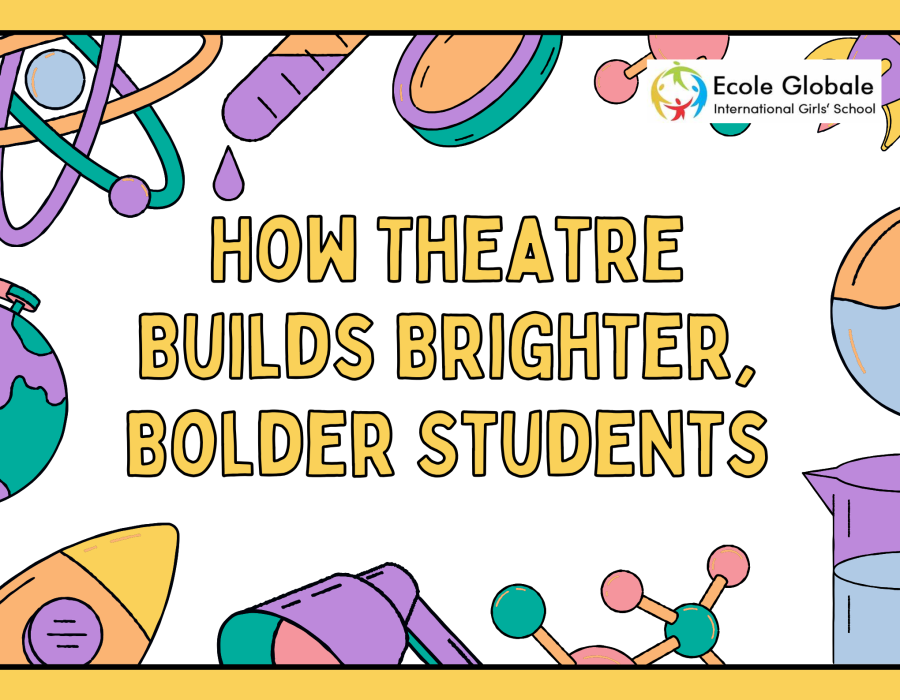Modern education is no longer confined to textbooks and exams. True learning involves developing emotional intelligence, communication, creativity, and confidence. Theatre, as a co-curricular activity, plays a vital yet often underutilized role in shaping these traits. Increasingly, progressive schools in India are recognizing the transformative potential of theatre as part of their holistic educational approach.
Acting Beyond Entertainment
Theatre is more than just performance—it’s a collaborative art that blends emotion, intellect, and physical expression. Through stage plays, skits, mime, and improvisation, students explore human behavior, relationships, and conflicts in a safe, imaginative setting. This exploration helps them understand not only others but also themselves.
Performing in front of an audience builds self-awareness and poise. It challenges students to speak clearly, project their voice, and own their presence—all skills that carry over into public speaking, leadership, and everyday communication.
The Confidence to Speak and Be Heard
One of the most significant transformations theatre provides is in self-confidence. For shy or introverted students, the stage becomes a platform of expression. In the safety of a character or role, they often find their voice.
Rehearsing lines, reacting in real-time, and responding to feedback teaches adaptability. Over time, even the most reserved students begin to shed their fear of judgment, learning to speak up with clarity and conviction—not just on stage, but in life.
Teamwork and Collective Growth
Theatre is inherently collaborative. No performance is possible without coordination between writers, directors, actors, stage crew, lighting, sound, and costume teams. Students learn how to work together, respect deadlines, compromise, and handle responsibility. They develop empathy by stepping into another’s shoes—literally and figuratively.
This teamwork mirrors real-world scenarios, where success depends not only on individual skill but on group dynamics and shared effort.
Cognitive and Emotional Development
Preparing for a performance requires intense focus and memorization, which sharpens the brain. Students must remember cues, lines, movements, and emotions. This cognitive demand enhances memory, comprehension, and focus.
Emotionally, theatre encourages introspection. Characters often deal with universal human experiences—loss, joy, conflict, resilience. By interpreting these emotions, students develop emotional literacy and sensitivity. This, in turn, improves their interpersonal relationships and mental well-being.
The Cultural and Social Lens
Theatre is a mirror to society. Plays often highlight social issues such as gender equality, mental health, caste, environment, or freedom. Students not only perform such themes but engage deeply with them—researching, discussing, and reflecting on real-life implications.
This awareness fosters social responsibility. It pushes students to think beyond themselves and consider their role in shaping the world. In this way, theatre becomes a tool for both expression and activism.
Boosting Language and Literacy
Whether in English or regional languages, theatre strengthens vocabulary, pronunciation, and fluency. Students are exposed to new words, dramatic structure, storytelling techniques, and dialogue delivery.
They begin to understand tone, rhythm, and body language—all of which are essential parts of effective communication. Writing scripts or adapting literature for stage also deepens their grasp of literary techniques, encouraging a love for reading and writing.
Creativity and Innovation in Action
In theatre, students don’t just act—they create. They brainstorm themes, design sets, develop characters, and even improvise when something doesn’t go as planned. This nurtures a sense of ownership and artistic vision.
Imagination is central to theatre. Whether turning a classroom into a forest or portraying an ancient kingdom with paper crowns, students learn to make the most of what they have. Such resourcefulness boosts innovation, a skill highly prized in the 21st-century world.
A Career Pathway for the Passionate
For some students, theatre is more than a co-curricular—it’s a calling. Schools that nurture theatre give these students a head start toward careers in acting, filmmaking, directing, writing, or production. Workshops, guest lectures from industry professionals, and school drama festivals can expose students to opportunities in the creative arts.
But even for those who don’t pursue the stage professionally, the skills they gain—confidence, expression, leadership—stay with them for life.
Theatre as a Lifelong Learning Tool
Perhaps the greatest gift theatre offers is lifelong adaptability. Life itself is full of unexpected scripts, role shifts, and public performances—whether it’s interviewing for a job, presenting a business idea, or resolving conflicts. The experience of theatre trains students for these real-world moments.
By practicing empathy, discipline, collaboration, and self-expression, students become not just better performers—but better people.
Final Curtain: Why Schools Should Embrace the Stage
Theatre enriches the school experience by blending art with life. It shapes minds and hearts while offering a joyful, expressive escape from the daily grind. In an age of rapid technological change and emotional disconnect, the human connection and creativity fostered through theatre is more important than ever.
As education shifts toward developing the whole child, theatre deserves a permanent spotlight in school life. Because in helping students take on roles, face the spotlight, and speak their truth—theatre teaches them how to live with purpose and passion.





Comments